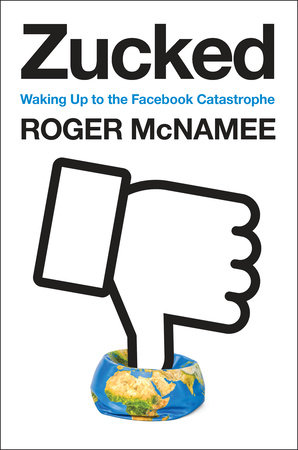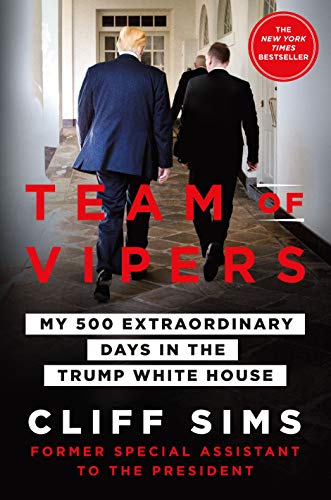Horrible bosses
I'm sick of Great Men. History books of the 20th century are fully stocked with parades of so-called Great Men — individualists, we're told, unique men with singular dreams — who change the world and rewrite history and reap the rewards. Winston Churchill. Steve Jobs. Pablo Picasso. We're told that great men are difficult and complex, and that in fact their greatness relies on that complexity.
This is a lie. It's a catchy story, and it's a story that's been sold to us for centuries, an unwanted leftover from the days when inbred royalty claimed a divine spark was the source of their strength. The fact is that if Henry Ford hadn't existed, someone else — most likely someone who wasn't a hateful bigot — would have revolutionized manufacturing. Ford just did it first, and loudest, and he crushed everyone else in his way.
Shitty men don't make the world possible. Shitty men just know how to manipulate the world to get what they want. And history rewards the superlatives — people who get there first, people who shout their own hagiography the loudest.
A pair of new books in the cultural conversation focus on two of the men who have done the most to shape our modern world. In the future, some will almost definitely describe them as "great men," but to many others — myself included — they're just two more in a long string of shitty self-important men who don't deserve the attention they receive.
Venture capitalist Roger McNamee's Zucked is the story of how the author went from one of Facebook founder Mark Zuckerberg's earliest mentors to one of his most public critics. It's so of-the-moment that the focus of the book appears to have changed at least once before publication. The original subtitle of Zucked was to be The Education of an Unlikely Activist, but the book was published with the subtitle Waking Up to the Facebook Catastrophe.
Though it's obvious why the publisher went with the second subtitle, I prefer the original one. McNamee began as one of Zuckerberg's most ardent boosters. Zuck, as he called Zuckerberg, struck him as a young visionary genius — the kind of person who, with Facebook, struck a potent vein of need in modern life.
McNamee is steeped in the toxic personality culture of modern American business. In the autobiographical portions of Zucked, he brags about meeting Bono and turning modest investments into ludicrous amounts of money. It's the kind of self-inflated poppycock you can find by throwing a dart at random into any bookstore's business section.
And the early portions of the book are thick with hero worship for Zuck. He's dazzled by the way Zuckerberg can ignore all social cues to go completely silent for a full five minutes during a business meeting to consider the implications of what's being discussed. He praises the man's "genius" repeatedly.
All that buildup, though, makes the emotional impact of McNamee's turn away from Facebook later on in Zucked much more meaningful. He goes to Zuckerberg and Facebook COO Sheryl Sandberg with what he believes to be a serious problem. He feels as though they ignore his concerns. And gradually, McNamee comes to believe that making a public statement against Facebook is necessary.
That's what most of Zucked is: an explanation of what Facebook does to keep you hooked and why. He describes it the same way a repentant con man might explain a favorite scam:
Few of us can resist the lure of persuasive technology. All we can do is minimize the stimulus, or avoid it altogether by not using devices. Each element of persuasive technology is a way to fool the user.
And he lays out Facebook's arrogant, dismissive corporate culture in a way that makes something abundantly clear: There are no adults in that room. Facebook will continue profiting from you and your family and your photos until you stop feeding it.
The issue that McNamee brought to Zuckerberg and Sandberg was the influence of foreign agents on the 2016 presidential election — particularly their use of divisive social media techniques to support the Republican candidate, Donald Trump. Without Facebook's influence, Cliff Sims probably would not have written his new memoir about his year and a half in the Trump White House, Team of Vipers.
Sims's memoir is everything that McNamee's is not. It is unrepentant. It is unintelligent. It is uninterested in figuring out what went wrong, or how the author is complicit in the crimes of the "great man" at the center of the story.
Sims is a religious conservative Christian who conspicuously censors the swears in his story. He hilariously quotes Omarosa Manigault in one passage: "You think you can come up in our house and demand f————ing privacy? Hell, no! You must be outta your d——— mind."
That's right. The man who worked for the unrepentant pussy-grabber is too gosh-darned sensitive to use a quote featuring the word "damn" in his own book.
That's a perfect example of Sims's hypocrisy, which infuses nearly every page of the book. The only real problem Sims has with President Trump is his crassness. All the rest of it — the corporate tax cuts at the expense of the middle class, the penning up of children in cages, the demonizing of nonwhite Americans — would be totally acceptable if Trump just spoke like, say, a Bush.
Let's be clear: if Sims didn't go to work for Trump, he would've wound up working for whichever Republican president happens next. Hopefully this book will scuttle those plans by marking him as a pariah — someone who decided to stand up for Trump and then was, in his own words, "unceremoniously abandoned by the President of the United States." He's a fink, a rat who clearly believes he's better than everyone he worked with. In fact, he's just as filthy as the rest of them.
The age of the Great Man is ending. As more perspectives and voices are entering the conversation, it's becoming apparent that there's no such thing as a Great Man of History — only perfectly mediocre white men who lack scruples or shame. McNamee seems to understand this, while Sims does not.
People like Sims, the obedient just-following-orders types who are continually looking for the next Great Man to follow, are the last line of defense between the Great Men and the dustbin of history. Without those toadies who care more for the appearance of propriety than maintaining the pillars of civilization, the Great Men would be finally revealed as the nothings that they really are.
Paul is a co-founder of The Seattle Review of Books. He has written for The Progressive, Newsweek, Re/Code, the Utne Reader, the Los Angeles Times, the Seattle Times, the New York Observer, and many North American alternative weeklies. Paul has worked in the book business for two decades, starting as a bookseller (originally at Borders Books and Music, then at Boston's grand old Brattle Bookshop and Seattle's own Elliott Bay Book Company) and then becoming a literary critic. Formerly the books editor for the Stranger, Paul is now a fellow at Civic Ventures, a public policy incubator based out of Seattle.
Follow Paul Constant on Twitter: @paulconstant
Other recent reviews
Talk about the weather
-
Interpretative Guide to Western-Northwest Weather Forecasts
March 27, 2018
72 pages
Provided by publisherBuy on IndieBound
The man show
-
The Sexiest Man Alive
October 01, 2018
72 pages
Provided by publisherBuy online
Accidentally honest
-
The Shame of Losing
October 01, 2018
264 pages
Provided by authorBuy on IndieBound

